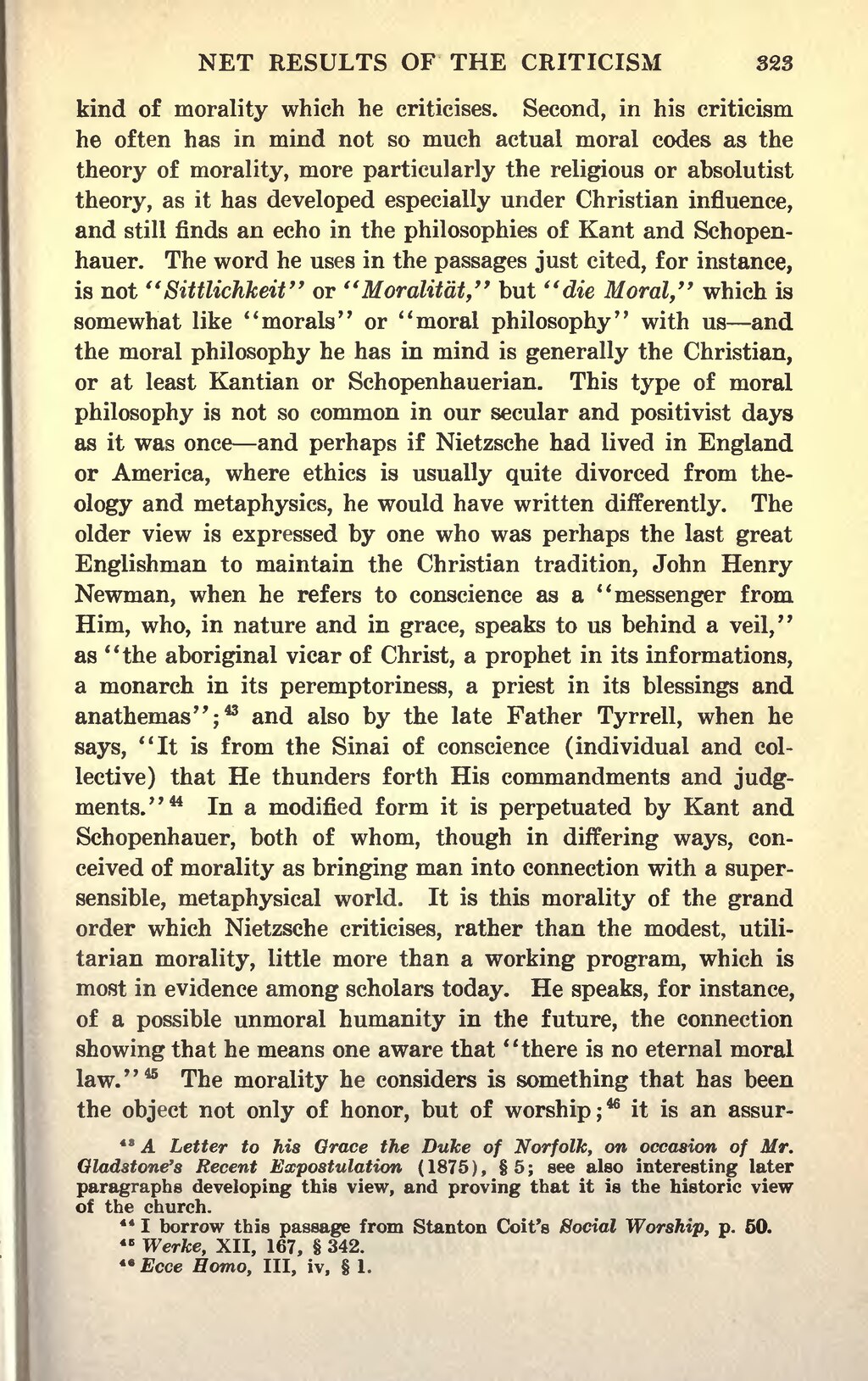kind of morality which he criticises. Second, in his criticism he often has in mind not so much actual moral codes as the theory of morality, more particularly the religious or absolutist theory, as it has developed especially under Christian influence, and still finds an echo in the philosophies of Kant and Schopenhauer. The word he uses in the passages just cited, for instance, is not "Sittlichkeit" or "Moralität," but "die Moral," which is somewhat like "morals" or "moral philosophy" with us—and the moral philosophy he has in mind is generally the Christian, or at least Kantian or Schopenhauerian. This type of moral philosophy is not so common in our secular and positivist days as it was once—and perhaps if Nietzsche had lived in England or America, where ethics is usually quite divorced from theology and metaphysics, he would have written differently. The older view is expressed by one who was perhaps the last great Englishman to maintain the Christian tradition, John Henry Newman, when he refers to conscience as a "messenger from Him, who, in nature and in grace, speaks to us behind a veil," as "the aboriginal vicar of Christ, a prophet in its informations, a monarch in its peremptoriness, a priest in its blessings and anathemas";[1] and also by the late Father Tyrrell, when he says, "It is from the Sinai of conscience (individual and collective) that He thunders forth His commandments and judgments."[2] In a modified form it is perpetuated by Kant and Schopenhauer, both of whom, though in differing ways, conceived of morality as bringing man into connection with a supersensible, metaphysical world. It is this morality of the grand order which Nietzsche criticises, rather than the modest, utilitarian morality, little more than a working program, which is most in evidence among scholars today. He speaks, for instance, of a possible unmoral humanity in the future, the connection showing that he means one aware that "there is no eternal moral law."[3] The morality he considers is something that has been the object not only of honor, but of worship;[4] it is an assur-
- ↑ A Letter to his Grace the Duke of Norfolk, on occasion of Mr. Gladstone's Recent Expostulation (1875), § 5; see also interesting later paragraphs developing this view, and proving that it is the historic view of the church.
- ↑ I borrow this passage from Stanton Coit's Social Worship, p. 50.
- ↑ Werke, XII, 167, § 342.
- ↑ Ecce Homo, III, iv, § 1.
